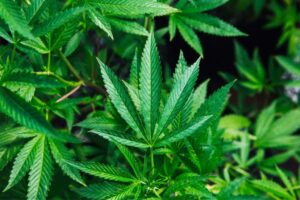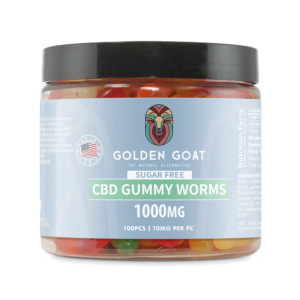Derived from the Ancient Greek word meaning “self-eating”, the term “autophagy” describes a vital process in which the cells of the body clear unnecessary or damaged components.
The process has been linked to a range of positive health effects by researchers. However, it is crucial to note that much of the research on autophagy is still in the early stage.
This article explores the topic of autophagy by examining what it is, its potential health benefits, what may induce it, as well as some possible side effects.
What is autophagy?
The human body comprises trillions of cells. As such, unwanted molecules can accumulate inside them over time, causing harm to the cell.
According to a 2015 paper published in Nature, autophagy is a natural process that responds to this issue. Autophagy is a key catabolic process that transports material from the cytoplasm to the lysosome for breakdown.
Autophagy contributes to cell survival by removing damaged organelles and protein aggregates and ensuring bioenergetic homeostasis.
Some of these molecules and components are occasionally destroyed by autophagy. Other times, the cell recycles these components into new parts.
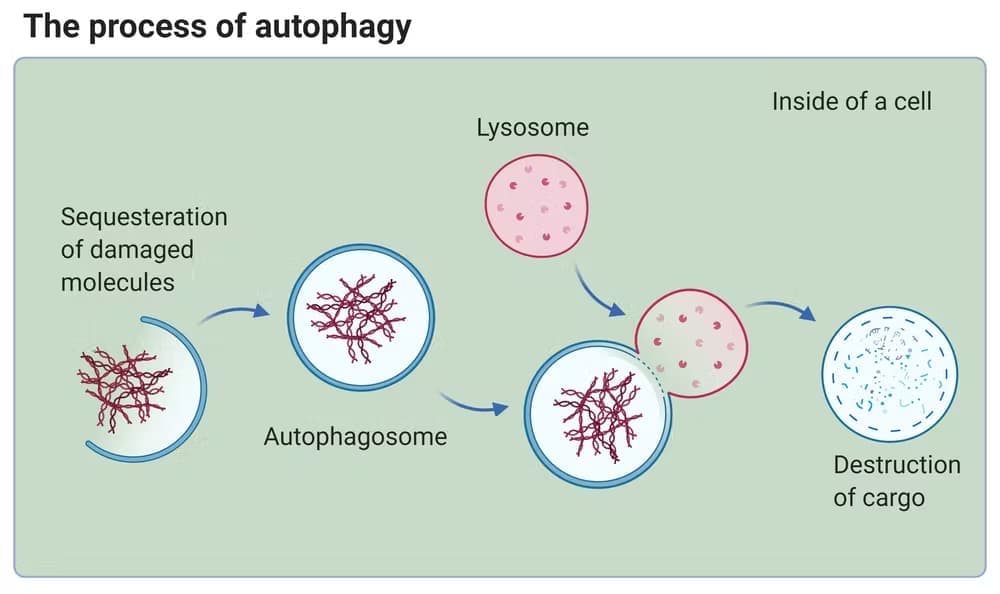
Why is autophagy important?
Autophagy is frequently considered a cell survival mechanism. Autophagy is augmented in response to nutritional limitation and cell stress to preserve the cell and maintain homeostasis.
Autophagy facilitates the elimination of protein aggregates and numerous studies indicate that autophagy may have a role in various human diseases, including cancer, neurodegeneration, and others. These are age-related illnesses, and aging relates to the buildup of metabolic byproducts, cell damage, and poor degradative machinery.
Autophagy is essential for neuroprotection in several neurodegenerative disease models, including Alzheimer’s and Huntington’s disease. Additionally, research shows that mitochondrial autophagy plays a critical role in Parkinson’s disease pathogenesis.
While promoting autophagy in neurodegenerative disease models results in healthier individuals, it is plausible that excessive autophagy has detrimental effects, including bioenergetic issues or, in the worst-case scenario, cell death while attempting to protect the cells.
Future research should investigate not just how autophagy may promote or inhibit cell survival or death but also the effect of autophagy modulation on the health of the test subject and patient.
Apart from its function in maintaining cellular homeostasis, autophagy also regulates the rapid cellular changes required for mammalian development and differentiation. For example, autophagy is essential for mitochondrial clearance during erythrocyte and adipocyte development.
Additionally, autophagy is involved in the clearing of abnormal proteins and organelles from host cells, as well as the removal of infectious agents such as bacteria and viruses.
Recent evidence from cell model studies indicates that upregulation of autophagy may be beneficial for the elimination of mycobacterium tuberculosis, streptococcus, mycobacteria and herpes simplex virus.
Both innate and adaptive immunological responses appear to account for this role of autophagy.
Given the critical role of autophagy in mammalian physiology, it is fair to assume that disruption of autophagy may lead to human illnesses.
Although autophagy was first described morphologically in mammalian cells in the 1960s until the discovery of a group of autophagy related (ATG) genes in the 1990s, the role of autophagy in various human disease states remained unknown, and it has only been in the last decade that the connection between autophagy and human disease has become a focus of intense study.
Autophagy has been linked to an increasing number of conditions, and it looks likely that other diseases associated with autophagy may be identified in the future. While the actual molecular pathways driving autophagy-associated disorders remain unknown, breakthroughs in autophagy research suggest a possible target for manipulating autophagy in human diseases.
Effects on health
While research has connected autophagy to various health benefits, this cellular process is complex, making conclusions difficult. The relationship between autophagy and liver health is also of interest to researchers. A review article published in 2020 investigated how autophagy may help protect liver cells from drug- and alcohol-induced liver injury.
Other research has found that autophagy plays a role in several liver activities and may help to prevent the advancement of various liver diseases, including:
• Wilson’s syndrome
• Acute liver damage
• NAFLD (nonalcoholic fatty liver disease)
• Chronic alcoholic liver disease
However, most autophagy research has been conducted in test tubes or animal models. Researchers argue that more human research is needed to discover how autophagy can affect treatment.
Autophagy appears important in the immune system, clearing away poisons and pathogenic pathogens. There is evidence that by reducing inflammation, autophagy may improve the prognosis for cells suffering from viral and neurodegenerative disorders.
Another review explains that autophagy aids in the protection of cells against invading microorganisms.
While extensive research has been conducted on autophagy’s influence on cells, experts are still uncertain whether enhancing autophagy might be a new therapy for a variety of conditions.
Can autophagy be triggered?
While autophagy happens naturally in the body, many people wonder if certain triggers may be used to induce autophagy.
Fasting
Fasting may be a possible trigger for autophagy. When someone fasts, they do it voluntarily for a substantial amount of time – hours, or perhaps a day or more.
Fasting is different from standard calorie restriction. When people restrict their calorie intake, they reduce their regular meal consumption. Depending on how much food a person ingests during feeding intervals, fasting may or may not result in calorie restriction.
A 2018 review of the existing research indicates that fasting and calorie restriction can promote autophagy.
Although some evidence suggests that this mechanism occurs in humans, most of these investigations involved non-human animals.
Fasting and calorie restriction place a strain on the body’s cells. When someone restricts the amount of food they consume, their cells receive fewer calories than they require to operate properly.

When this occurs, the cells must operate at a higher efficiency level. Autophagy causes the body’s cells to clear out and recycle any unnecessary or damaged components in response to the stress caused by fasting or calorie restriction.
However, scientists are uncertain which cells respond in this way to fasting and calorie restriction. Individuals attempting to activate autophagy by fasting should be aware that this may not specifically target fat cells.
Researchers continue to debate whether fasting may trigger brain autophagy. At least one animal study indicates that fasting for a brief period can trigger autophagy in brain cells.
Exercise
Exercise places the cells in the body under stress, as does any physical activity. When individuals exercise, their cells’ components get damaged and inflamed. According to the authors of one paper, our cells respond to this situation using autophagy.
This suggests that individuals may be able to induce autophagy through exercise. Indeed, there is evidence that exercise promotes autophagy in human skeletal muscle.
Curcumin
Scientists have hypothesized that curcumin consumption induces autophagy, at least in mice experiments. Curcumin is a naturally occurring substance in turmeric root, a spice commonly used worldwide.
For instance, one animal study revealed that curcumin-induced restoration of autophagy might protect against diabetic cardiomyopathy, which affects the heart muscles in persons with diabetes.
Another study in mice indicated that curcumin helped fight cognitive impairment caused by chemotherapy by activating autophagy in specific brain areas.
While these preliminary findings are encouraging, further study is required before scientists can make any conclusions. Scientists, in particular, do not know for sure if increasing curcumin consumption can trigger autophagy in humans.
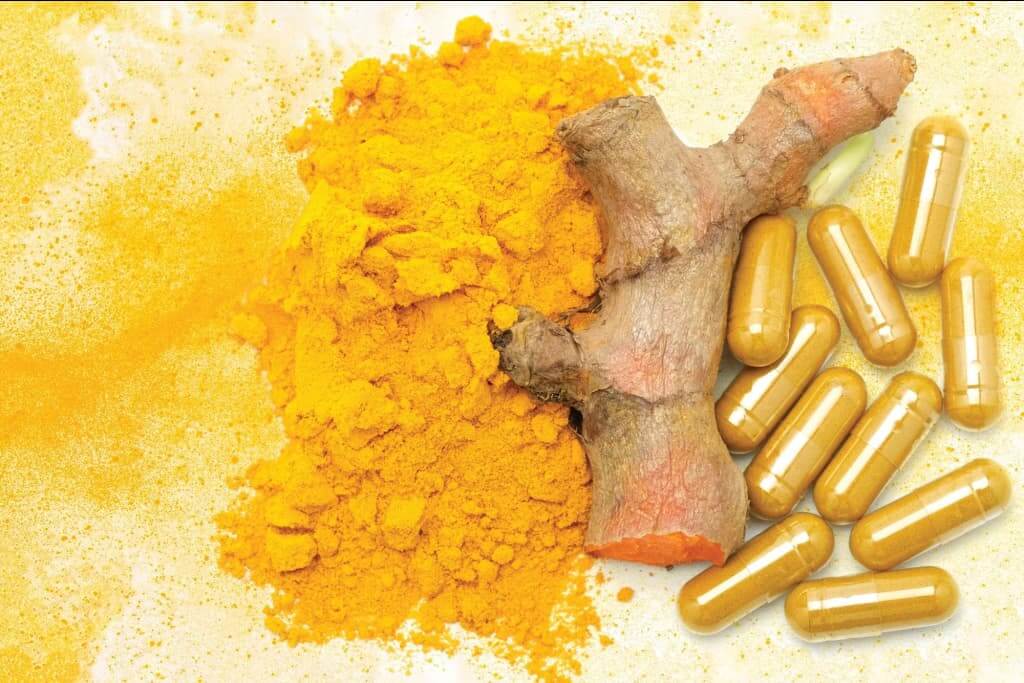
CBD
Given that both the autophagy and endocannabinoid systems are involved in cellular and organismal homeostasis, their link is unsurprising.
Endocannabinoids are created locally and on-demand in response to environmental signals, making them quick and effective inducers of autophagy. Additionally, phytocannabinoids can promote autophagy.
Numerous studies have demonstrated that CBD may be beneficial in the treatment of neurodegenerative disorders such as Parkinson’s and Alzheimer’s disease.
Although research has established that CBD emits an active role in neurological diseases via G protein-coupled receptors, TRPV1 ion channels, and peroxisome proliferator-activated receptors, the exact protective mechanism of CBD against Parkinson’s nerve damage has not been fully elucidated.
CBD induces autophagy in breast cancer cells, with Beclin-1 playing a critical part in the process. CBD exerted its impact in a receptor-independent manner, primarily through oxidative stress and its effects on mitochondria.
Additionally, it has been shown that a cannabis derivative, O-1663 (CBR2 agonist), induces autophagy and death in breast cancer cells, particularly metastatic cancer cells. As a result, CBG, a phytocannabinoid with a high affinity for CBR2, plays a significant role in breast cancer therapy.
CBD was also demonstrated to trigger autophagy in completely differentiated Caco-2 cells, a model of the adult intestinal epithelium, in a dose-dependent way.
-
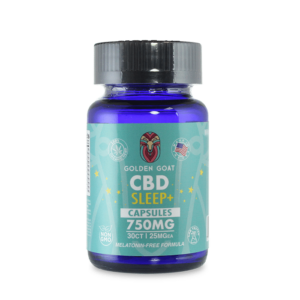 CBD+Sleep Capsules – Broad Spectrum – 750MG – 30ct$54.99Rated 4.55 out of 5 based on 11 customer ratings
CBD+Sleep Capsules – Broad Spectrum – 750MG – 30ct$54.99Rated 4.55 out of 5 based on 11 customer ratings -
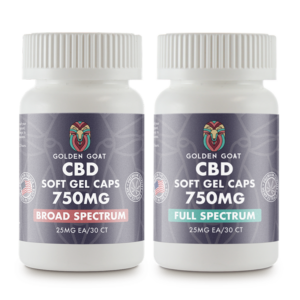 CBD Gel Capsules – 750MG – 30ct$44.99 – $49.99Rated 5.00 out of 5 based on 10 customer ratings
CBD Gel Capsules – 750MG – 30ct$44.99 – $49.99Rated 5.00 out of 5 based on 10 customer ratings
In this study, the CBR1 agonists ACEA and anandamide promoted autophagy independently via the cannabinoid type 1 and CBD receptors. This might be one of the processes behind cannabis’ therapeutic applications in inflammatory bowel diseases.
It is critical to distinguish between the risks connected with autophagy and those related to individuals’ attempts to induce autophagy. Autophagy is not always beneficial.
Studies have shown that excessive autophagy has been found to destroy heart cells, and scientists have implicated excessive autophagy in certain cardiac diseases.
The bottom line
Autophagy is a critical biological mechanism that eliminates damaged and superfluous cell components. There is evidence that it may have beneficial and detrimental impacts on health.
While research has demonstrated that food restriction, exercise, curcumin, and CBD supplementation may influence autophagy, most studies have been conducted on non-human animals.
Scientists cannot be 100% certain about autophagy’s health consequences or how individuals can trigger it. Anyone thinking of altering their lifestyle to stimulate autophagy should always consult a doctor beforehand.
DISCLAIMER: THIS ARTICLE DOES NOT PROVIDE MEDICAL ADVICE
The information, including but not limited to text, images, graphics, and other material contained in this article, is for informational and educational purposes, solely intended to be used as a self-help tool. No information in this article or on this website is intended to substitute for professional medical advice, treatment, or diagnosis. Always seek guidance and advice from a qualified healthcare provider before undertaking a new healthcare regimen.



